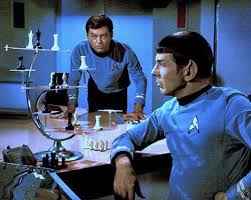Today’s edition of the Washington Post (Sunday, April 9, 2019) included an interview with King Adbullah II of Jordan, conducted by senior associate editor Lally Weymouth. Midway through the exchange, the topic turned to Russia’s support of Syrian President Bashar al-Assad.
Q. Do you want to see the U.S. engage with Russia over Syria?
 A. I’ll tell you why that works: From the Russian point of view, they play what I describe as a three-dimensional chess game. To them, Crimea is important, Syria is important, Ukraine, and we see them in Libya. The Americans and Europeans must deal with the Russians on all these issues simultaneously.
A. I’ll tell you why that works: From the Russian point of view, they play what I describe as a three-dimensional chess game. To them, Crimea is important, Syria is important, Ukraine, and we see them in Libya. The Americans and Europeans must deal with the Russians on all these issues simultaneously.
Q. Once you understand these issues together, what do you do?
A. Then you horse-trade. For the Russians I think the most important thing is Crimea. If you come to an understanding on Crimea, I think you will see much more flexibility on Syria, and I think Ukraine then becomes the least problematic.
It is hard to discern whether King Abdullah’s comments were a slip of the tongue or a deliberate signal to the Russians. If only Putin would abandon Assad, international disfavor, including crippling economic sanctions, could magically evaporate into thin air. Either way, the Jordanian monarch provided a more believable scenario than any so far proffered by the White House, Congress or the news media. Especially if the untimely re-introduction of chemical weapons into the Syrian civil war provided the excuse Moscow needed to throw Assad under the bus.
So, the game is afoot. But I, for one, feel uncomfortable imagining an individual who cannot distinguish between facts and lies representing the United States in an exercise which requires such logic and concentration. Referencing the use of three-dimensional chess as a frequent prop in the original Star Trek series, the website “Fandom” found the game challenging for even the most mentally acute players.
Commander Spock was an exceptional chess player; his game was consistently logical. However, he often had a difficult time predicting or effectively responding to the unexpected moves made by his frequent opponents, Captain Kirk and Doctor McCoy.
I can just hear William Shatner paraphrasing Senator Lloyd Benson during the 1988 vice-presidential debate.
Comrade Trump, I served with Mr. Spock, I knew Mr. Spock. Mr. Spock was a friend of mine. Comrade, you’re no Mr. Spock.
There is one more significant difference between His Orangeness and the USS Enterprise’s first officer. Spock sat across from his opponent, unlike the current White House occupant who so often seems to be on the same side of the table as his BFF Vladimir Putin.
Stay tuned. As the tagline for one of my favorite movies Now You See Me suggests, “Come in close, because the more you think you see, the easier it’ll be to fool you.”
For what it’s worth.
Dr. ESP